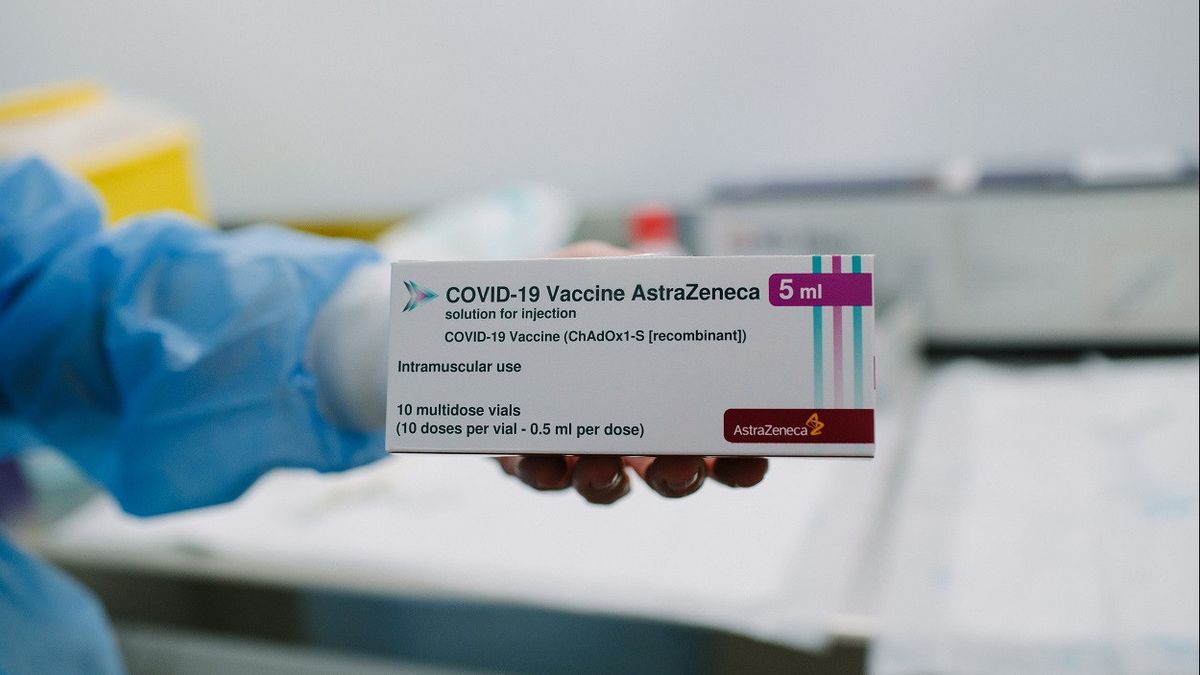JAKARTA - Germany, France, and Italy announced the suspension of the use of the COVID-19 vaccine alerted by AstraZeneca, after several countries reported possible serious side effects, Monday, March 15 local time.
Although the World Health Organization (WHO) states there is no proven link and the public need not worry. The decisions of these three countries added to the complexity of the vaccination programs of European Union countries.
Denmark and Norway stopped giving injections last week after reporting cases of isolated bleeding, blood clots, and low platelet counts. Iceland and Bulgaria followed suit and Ireland and the Netherlands announced suspensions on Sunday.
Spain will stop using the AstraZeneca vaccine for at least 15 days, Cadena Ser radio reported, citing unnamed sources quoted by Reuters.
WHO scientists on Monday confirmed that there were no documented deaths related to the COVID-19 vaccine.
"We don't want people to panic. so far there is no link between the so-called thromboembolic events reported in some countries and the COVID-19 vaccination”, Soumya Swaminathan said at a virtual media conference.

Meanwhile, WHO Chief Tedros Adhanom Ghebreyesus said an advisory committee meeting at AstraZeneca would be held on Tuesday. The European Medicines Agency regulator (EMA) will also convene this week, to assess the information gathered regarding whether AstraZeneca injections are contributing to thromboembolic events in those inoculated.
The actions of some of Europe's largest and most populous nations will deepen concerns about the slow pace of vaccine rollouts in the region, which has been plagued by shortages due to production problems, including AstraZeneca's.
Germany warned last week that it was facing the third wave of infections, Italy was intensifying its lockdown, and hospitals in the Paris area were nearly overloaded.
German Health Minister Jens Spahn said that although the risk of blood clots was low, it could not be ruled out.
"This is a professional decision, not a political one. It follows the recommendations of the Paul Ehrlich Institute, Germany's vaccine regulator", said Spahn.

France said it was suspending vaccine use pending an assessment by the EMA.
"The decision to be taken, also in line with our European policy, is to suspend, because of precautionary measures, vaccination by injection of AZ (AstraZeneca), hoping that we can proceed quickly if EMA guidance allows", said French President Emmanuel Macron.
Italy says its suspension is a precautionary measure and is pending the EMA's decision.
"The EMA will meet soon to clarify any doubts so that the AstraZeneca vaccine can safely proceed to the vaccination campaign as soon as possible", said Gianni Rezza, Director General of Prevention at the Italian Ministry of Health.
Austria and Spain have stopped using certain batches and prosecutors in Italy's northern region of Piedmont previously seized 393,600 doses, following the death of a man hours after he was vaccinated. It was the second region to do so after Sicily, where two people died shortly after being vaccinated.
Confusing decision
In contrast to the above countries, Britain says it has no worries, while Poland says the benefits outweigh any risks.
EMA data as of March 10 states that a total of 30 cases of blood clots have been reported among the nearly 5 million people vaccinated with AstraZeneca injections in the European Economic Area, which connects 30 European countries.
Michael Head, senior research fellow in global health at the University of Southampton, said the decisions by France, Germany, and others looked puzzling.
"The data we have show that the number of side effects associated with blood clotting is the same (and possibly, in fact, lower) in the vaccinated group, compared to the unvaccinated population", he explained.

"Stopping the vaccination program has consequences. This has resulted in delays in protecting people, and a potential increase in vaccine hesitation, as a result of people who have seen the headlines and are understandably concerned justify this decision", he explained.
A senior German infectious disease doctor, however, said the background incidence of 2-5 thromboses per million per year was significantly lower than the 7 out of 1.6 million vaccinated people cited by the German health ministry.
"This should be a reason to stop vaccination in Germany until all cases, including suspected cases in Germany and Europe, have been completely cleared", said Clemens Wendtner, head of the special unit for life-threatening highly contagious infections at the Schwabing Clinic, Munich, Germany.
Sunday, March 14th, AstraZeneca has clarified. They said the results of the internal examination showed no evidence of an increased risk of blood clots. This was obtained from AstraZeneca's review of more than 17 million people who were vaccinated in the UK and the European Union.
“A careful review of all available safety data on more than 17 million people, who were vaccinated in the EU and UK with the AstraZeneca COVID-19 Vaccine showed no evidence of an increased risk of pulmonary embolism, deep vein thrombosis or thrombocytopenia, in any given age, group, gender, group or in a particular country", the company said in its statement.
The English, Chinese, Japanese, Arabic, and French versions are automatically generated by the AI. So there may still be inaccuracies in translating, please always see Indonesian as our main language. (system supported by DigitalSiber.id)













